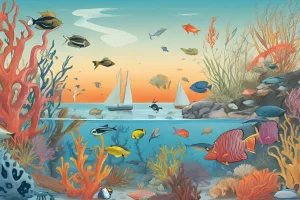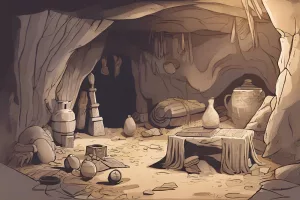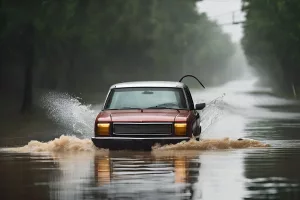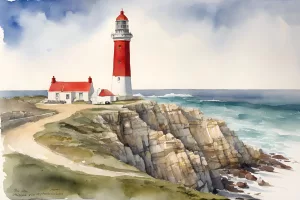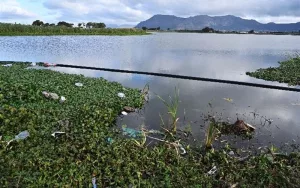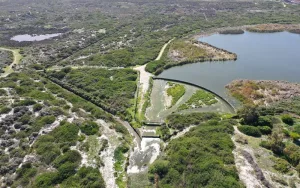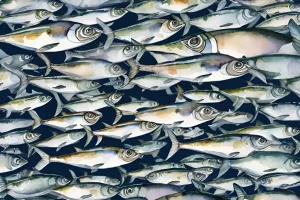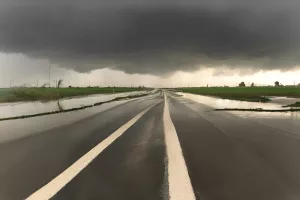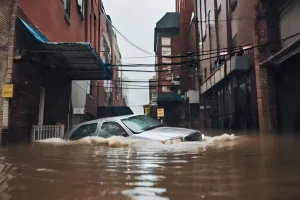People in South Africa’s Eastern and Western Cape were awed by the recent sighting of a meteorite that briefly lit up the morning sky before plunging into the ocean. Videos and photos of the spectacular event were shared on social media, sparking discussions and debates. The meteorite’s impact caused a loud blast, leading to concerns about a potential tsunami. The event brought communities together and sparked an interest in astronomy and the mysteries of the universe.
A sanctuary in Cape Town meant to provide refuge for distressed animals turned into a location of neglect and overcrowding. The Society for the Prevention of Cruelty to Animals (SPCA) rescued 31 dogs in dire need of medical intervention. The SPCA issued a stern warning to the facility, and with the help of the Cape Animal Welfare Forum, several organizations offered to accommodate the animals. This incident highlights the importance of collaboration in tackling animal welfare issues and the responsibility animal welfare organizations have to ensure sanctuaries remain places of rehabilitation and second chances.
Laingsburg is a historical town in South Africa that offers cultural and geological offerings. Although it was devastated by a flood in 1981, the town’s residents have shown unyielding spirit and persistence. Visitors can explore the town’s journey through this challenging period, enjoy outdoor activities, and admire the harmonious blend of its historical charm and modern charms, making it a desirable place to live, invest, and visit.
Join filmmaker and emotional ecology advocate Craig Foster on a journey to reconnect with nature in Cape Town. From diving at Windmill Beach to tracking wildlife at Cape Point Nature Reserve, experience the beauty of South Africa while keeping conservation in mind. Foster implores visitors to respect and protect the environment through activities like beach cleanups and volunteering with local conservation organizations. By appreciating and interacting with nature, we can better understand the necessity of safeguarding it for future generations.
The termite mounds of Namaqualand, South Africa, have been found to be the world’s oldest termite colonies, dating back 34,000 years. These heuweltjies have provided crucial insights into ancient climates, ecosystems, and carbon sequestration processes, making them important for calculating a country’s carbon budget and combating climate change. The termites’ harvesting activities and the dissolution of soil mineral calcite in these calcareous mounds offer longterm carbon storage solutions that companies strive to replicate in enhanced weathering and ocean alkalinity enhancement projects. These termite mounds are a natural wonder that provides a glimpse into Earth’s ancient past.
The Western Cape in South Africa is home to two World Heritage Sites, the Diepkloof Rock Shelter and the Pinnacle Point Site Complex, crucial in understanding modern human evolution. These sites offer a glimpse into our shared past, representing our collective historical memory and providing fundamental insights into the emergence of modern human behavior. The preservation of these sites is a commitment to safeguarding our shared ancestry and preserving our collective historical memory.
Citrusdal, a beautiful town in South Africa’s Western Cape, has been hit by severe flooding, blocking access and causing significant infrastructure damage. However, the community and government are working tirelessly to restore access and mitigate future risks. The Western Cape Department of Infrastructure is implementing an extensive repair plan, with some routes already reopened. The community is urged to exercise patience and caution while progress is made, and the restoration of Citrusdal serves as a testament to the community’s resilience.
L’Agulhas is a stunning coastal town where the Indian and Atlantic Oceans converge. It boasts abundant biodiversity, untouched wetlands, and intriguing bird species, making it a paradise for nature enthusiasts and art lovers. The town also has a thriving wine culture and is an emerging wine frontier in South Africa. Educational institutions and upcoming real estate developments make L’Agulhas an ideal place to live in, surrounded by picturesque landscapes and idyllic lifestyle options.
The ocean around Blouberg Beach in South Africa has undergone a strange transformation in color, triggering a range of theories and discussions. Some blame pollution, while others suggest natural phenomena, such as sediment mixing or freshwater interacting with saltwater. Despite the ongoing mystery, the situation highlights the need to understand the interplay between human actions and nature’s reactions to preserve our ecosystems. The power of shared curiosity and the role of social media in generating crucial dialogues have also been emphasized.
Spearheading Eco-Conservation: The Dynamic Role of Waste Interceptors in Aquatic Channels
Waste interceptors are costefficient tools that trap floating rubbish and debris in urban aquatic channels, ensuring a cleaner and healthier ecosystem. The city of Cape Town has successfully installed eight waste interceptors in rivers and water channels, showcasing its dedication to environmental conservation. The interceptors are designed using a simple mechanism and are adaptable to a range of waterways, making them an effective solution for litter control. The city’s continued commitment to maintaining and cleaning the interceptors highlights its resolve to improve water quality and safeguard longterm ecosystem health.
Cape Town is revamping the weirs at Zeekoevlei and Rondevlei as part of a larger plan to improve water quality. The proposed changes aim to promote the oxygenation of exposed sludge, elevate groundwater levels and restore natural equilibrium. The City is encouraging public participation and adhering to strict environmental guidelines to ensure compliance. The proposed redevelopment represents a shared vision of a healthier environment and a sustainable future.
The Sardine Run in South Africa is a breathtaking, raw display of marine life that has earned the title ‘Greatest Shoal on Earth.’ Billions of tiny silver bodies create a surge of life that lures predators such as sharks, dolphins, and orcas. However, overfishing and climate change are threatening the future of this annual spectacle, making its preservation crucial to the health and diversity of our marine ecosystems. The event’s magnitude is so colossal that it challenges human comprehension and belief, making it a wonder that deserves protection and preservation.
The African Penguin population has declined by more than half in the last decade, with only about 31,700 individuals left across their entire habitat. In 2000, an ecological disaster caused by the sinking of a fully loaded MV Treasure orecarrier led to over 40% of the global population of African Penguins being drenched in deadly heavy fuel oil. A paper published in Ostrich: Journal of African Ornithology suggests that the African Penguin meets the criteria to be classified as ‘critically endangered’, and the IUCN will make a final decision on its status on October 22.
Severe weather warnings have been issued for the Western Cape of South Africa, predicting heavy rain, strong winds, and snowfall in elevated areas, leading to road closures and cautionary measures. SAWS forecaster Lehlohonolo Thobela has disseminated the information to alert inhabitants to brace themselves for the looming weather scenarios. Despite the weatherrelated upheavals, the Western Cape’s resilient spirit stands firm, showcasing its adaptability and community resilience.
Cape Town faces heavy rainfall and flooding, but the city’s stormwater and sewage teams work tirelessly to unblock drains and maintain drainage systems. Public cooperation is also essential, with reporting of obstructed infrastructure and illegal dumping crucial in minimizing crises. Despite the challenges, Cape Town remains resilient thanks to the collective effort of its teams and residents.
An unforgiving storm has hit the city, causing flooding and roadblocks. MyCiTi bus routes are delayed and many areas are under water. Despite the chaos, the city’s unity and resilience shine through as residents show patience and understanding in weathering the storm and future challenges. The storm may have brought the city to a standstill, but its strength and adaptability are evident in the face of adversity.




